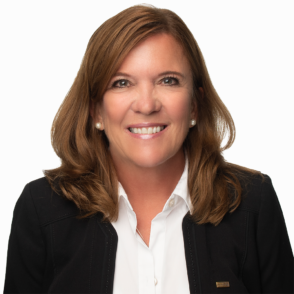Key Takeaways:
- Artificial intelligence (AI) tools offer new diagnosis and treatment possibilities, but safeguards must be in place for clinical judgment to override AI systems.
- Data privacy concerns are growing for healthcare providers and may be amplified by the increased use of AI-powered ambient listening technology.
- Medspa services carry risks related to licensing, supervision, and sexual misconduct claims.
- GLP-1 medications for weight loss are increasingly being offered by medical spas, raising regulatory and clinical questions.
- Telehealth’s growing role introduces state licensing challenges, especially when care crosses state lines.
- Insurance carriers may introduce new questions related to AI and other technologies to better assess risks and determine appropriate coverage needs.
The healthcare industry is evolving at a rapid pace, bringing innovation, expanded access, and the potential for improved patient outcomes. Alongside this progress, however, comes a complex web of emerging risks that healthcare providers must navigate — from the rise of artificial intelligence in clinical decision-making to expanded telehealth programs and the explosive growth of the medspa industry.
Data from the American Medical Association indicates that 1 in 3 physicians have faced a lawsuit at some point in their career, and this figure could escalate as the healthcare liability landscape shifts. To help healthcare providers manage these risks, insurance professionals must stay ahead of trends to properly advise clients, assess exposures, and secure coverage that aligns with the realities of modern care.
AI in Healthcare
AI is already embedded in many areas of healthcare. In a 2024 study by the American Medical Association, about 66% of physicians surveyed said they currently use AI in their practice, up from 38% in 2023, with “addressing administrative burden through automation” listed as the top area of opportunity for AI. Artificial intelligence tools can also be used to document conversations between patients and providers through ambient listening, help providers interpret imaging and lab results, suggest treatment plans, and prioritize cases.
Those tools come with unique risks. The sensitive data collected through ambient listening could increase the risk of privacy breaches and HIPAA violations if the information is not properly secured, and using AI tools for diagnosis could lead to the misclassification of conditions, delays in patient care, and harmful outcomes.
While insurance carriers continue to assess the impact of these tools on risk exposure, healthcare facility owners should inform their insurance broker of any new technology being used at the practice and outline the safety protocols in place to protect patients and their data. Human oversight of AI tools, for example, is essential; if an AI tool recommended a treatment approach that a physician followed without personally validating first, liability claims could arise.
Medspa Boom: Navigating Innovation and Risk
The medical spa industry is now a $17 billion market in the U.S., having grown significantly over the past decade as individuals seek out cosmetic treatments such as fillers, laser hair removal, chemical peels, and more. Many medspas are also now offering weight loss treatments including semaglutide and other GLP-1 medications.
However, this rapid expansion has outpaced regulatory clarity in many areas, exposing providers and owners to increased liability. Procedures performed by unlicensed personnel have led to major claims and lawsuits, including a $1.2 million judgment against a medical spa in Pennsylvania over botched chin injections given by a nurse with a suspended license.
Medspas offering weight loss medications like semaglutide and tirzepatide — often obtained through compounding pharmacies — should closely track whether these drugs remain on the FDA shortage list. Once a drug is no longer in shortage, compounding it is generally no longer allowed, a compliance issue that insurance underwriters are watching closely. Advertising is another area of concern, particularly around weight loss treatments. Some major pharmaceutical companies have pursued legal action against medspas for using brand names like Mounjaro without authorization, prompting certain insurers to limit Advertising Injury coverage for weight loss-related marketing.
In today’s litigious environment, another increasingly necessary coverage for medspas is Sexual Abuse and Molestation (SAM) Insurance, particularly when massage or waxing services are offered. Regardless of outcome, a SAM claim can be devastating financially and cause long-term reputational damage.
Data Privacy and Telehealth
The healthcare sector continues to be a prime target for cyberattacks. In a 2024 HIPAA Journal survey of healthcare IT security professionals in the U.S., 92% reported their organization having experienced at least one cyberattack in the past year, up from 88% in 2023. Data privacy concerns are further heightened amid the rise of ambient listening tools and other AI-supported software. Even unintentional breaches — like accidentally recording sensitive patient conversations — could trigger costly claims.
Telemedicine services, which have transitioned from a pandemic-era necessity to a lasting feature of healthcare delivery, also bring distinct liability challenges. Treating patients across state lines introduces complex regulatory and malpractice risks, as each state has its own licensing laws and compliance standards.
Good Clinical Care Is Good Risk Management
Healthcare is now more technology-driven than ever. While innovations like AI tools, telehealth, and new treatment models may offer significant benefits, they can also introduce new liability concerns. Ultimately, good clinical care is the foundation of effective risk management.
Tips for Brokers and Agents
Insurance professionals play a key role in helping providers communicate their practices clearly, especially when using emerging technologies.
- Ask detailed questions about how AI is used in the practice. For example, ensure that clinical judgment can override AI decisions. Be particularly mindful of data privacy concerns that may arise with the use of AI-powered ambient listening technology.
- Help clients present AI-related use clearly in submissions. Show that the technology is commercially tested and part of a structured clinical risk management program. Highlight any measures taken to address data privacy concerns.
- Do not “just forward” a submission. Read it thoroughly and help tell the client’s story. Detailed, clear submissions that highlight oversight, risk management, and data privacy protocols can help clients secure better terms.
- Educate clients on today’s evolving cybersecurity landscape. It is essential to review Cyber & Privacy Liability Insurance coverages and exclusions.
- Ask whether telehealth services cross state lines. If so, ensure that clients understand compliance requirements.
- Help medspa clients understand the importance of proper licensing and oversight. Ask if they have a medical director in place, especially for advanced procedures.
- Review advertising practices and discuss insurance coverage for Advertising Injury. Ensure clients are not unknowingly at risk, especially if using brand names like “Ozempic” or “Mounjaro” in marketing materials.
- Counsel clients about the growing need for SAM coverage. Even if proven untrue, a SAM allegation can be devastating financially and to a client’s reputation.
The rapid pace of change in Healthcare Liability Insurance demands partners who can assist brokers and agents in providing the right coverage for their insureds’ unique needs. Burns & Wilcox experts bring a comprehensive understanding of the landscape, risks and opportunities to ensure sound risk management and mitigation strategies. Contact us today to learn more.
Contributors: Laura McCormick, Associate Vice President, Regional Practice Group Leader, Professional, Burns & Wilcox, Dallas/Ft. Worth, Texas; Caileb Newby, Broker, Professional Liability, Burns & Wilcox, Brokerage Division, San Francisco, California; Chris Valenzuela, Broker, Professional Liability, Burns & Wilcox, Los Angeles, California; and Deb Goldberg, Head of Allied Healthcare, AXIS Capital.







